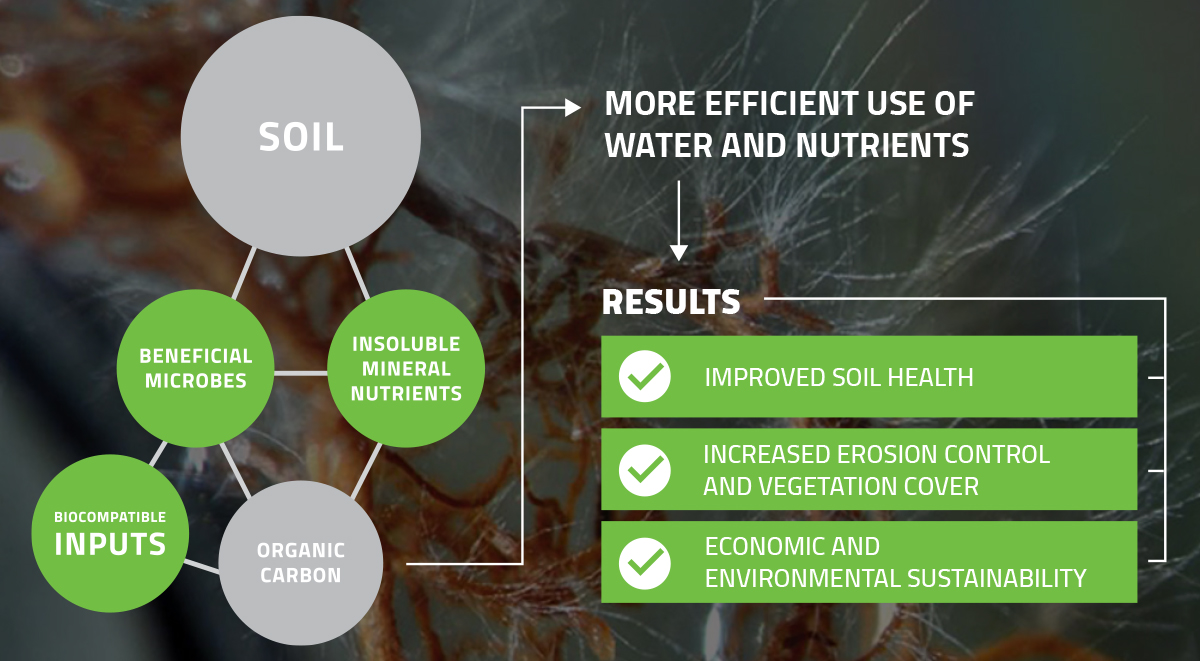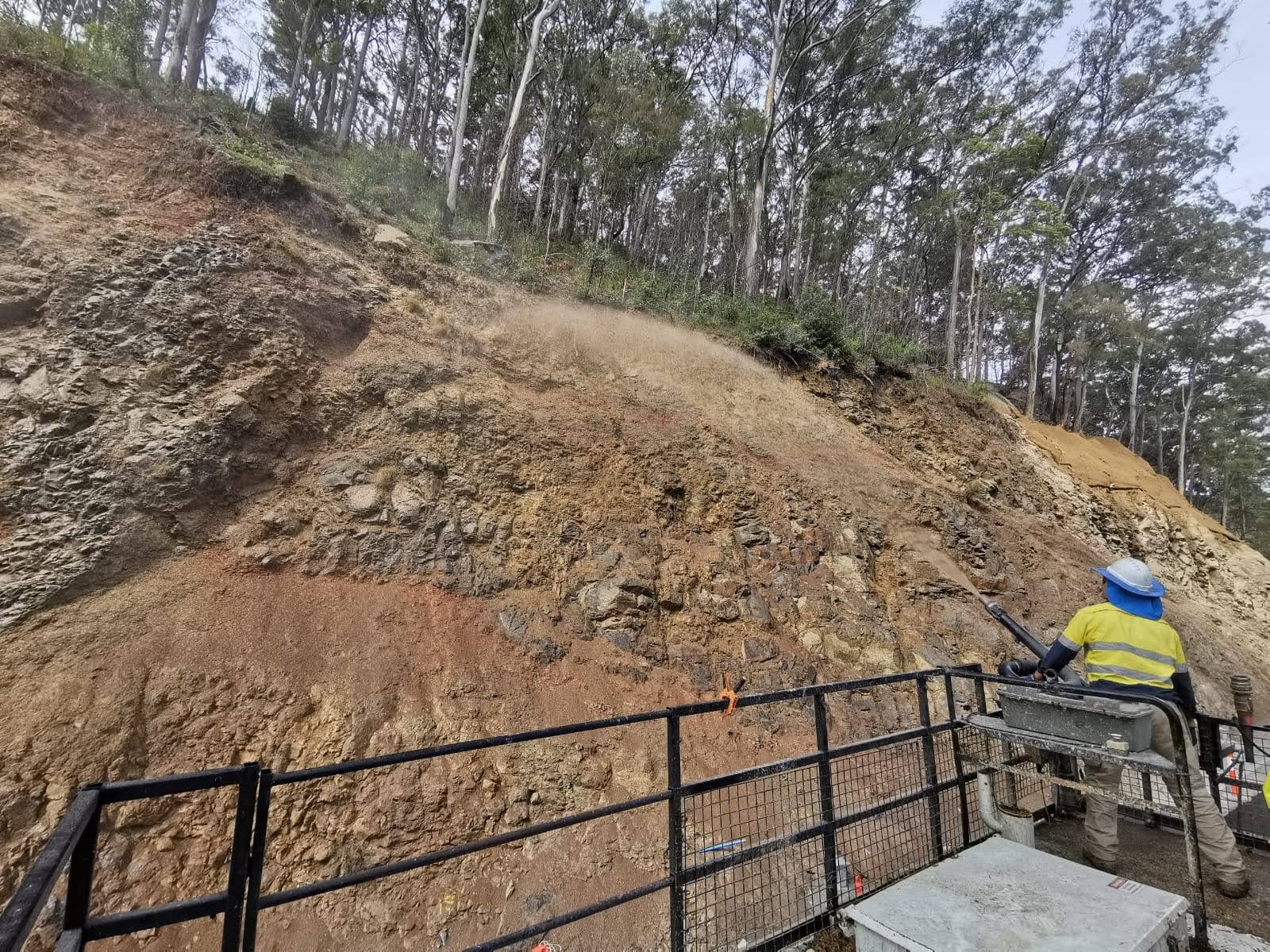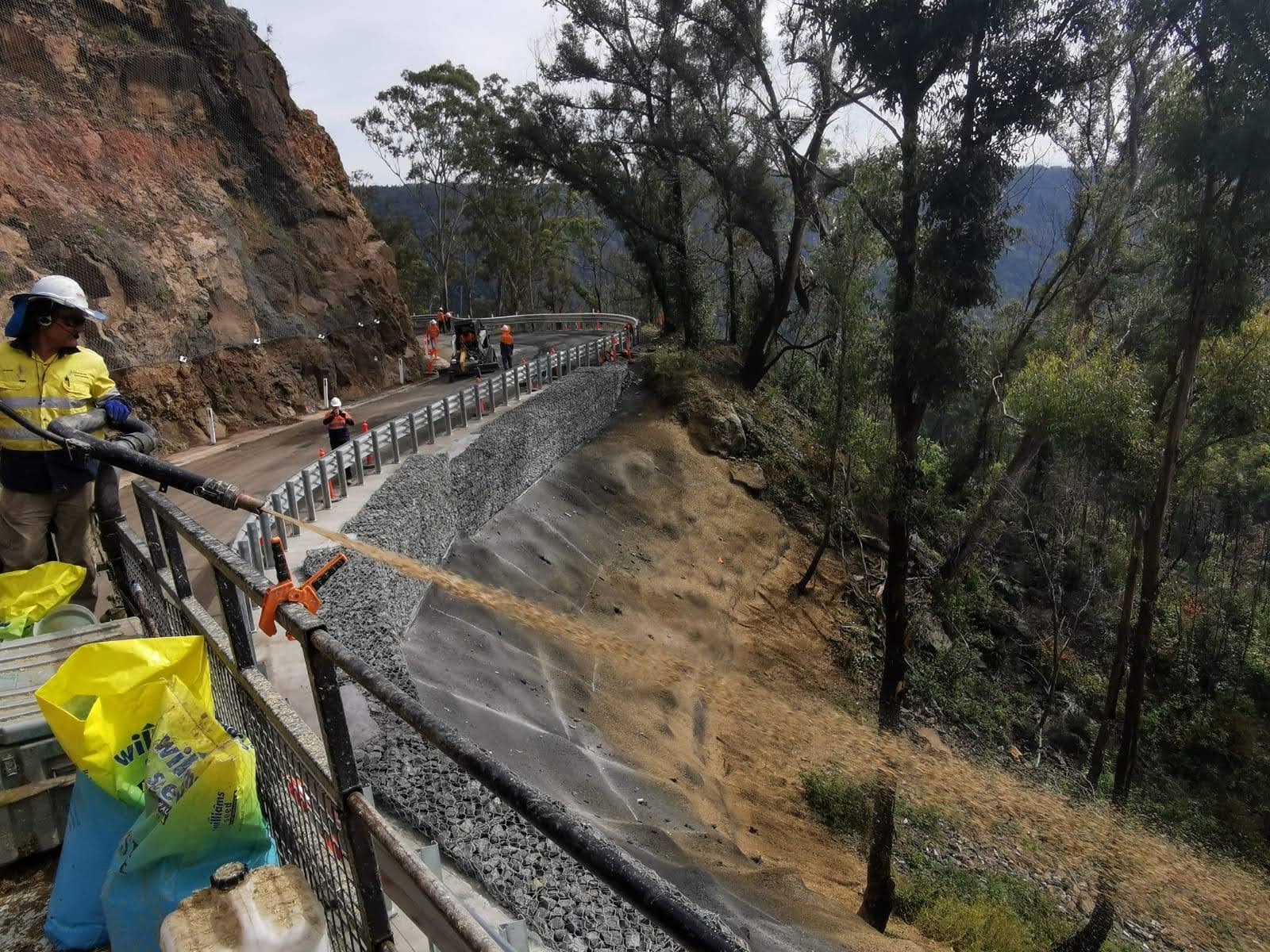From mine sites and road projects to development sites and anywhere erosion strikes, disturbed soil can mean a disturbed and imbalanced soil microbiome – leading to poor soil health.
Soil, through its microbiome, has the capacity to function as a dynamic, living organism that responds (either positively or negatively) to the way it is managed and maintained.
Soil microbes are living things that thrive by having a synergy with plants growing in the soil. As the plants are also living organisms, they also benefit from a relationship with the soil biology as this is how they can get more efficient access to nutrients. The soil microbes and the plants form a beneficial and symbiotic relationship where the plants feed sugary root exudates (liquid carbon) to the microbes, and the microbes in return feed the plant essential nutrients. Without this relationship, plants don’t survive as well. The alternative is feeding water-soluble fertiliser (WSF) to the plants – which is generally less optimal and not self-sustainable. By rebuilding the microbiome in the soil, we can quickly improve soil health, correct soil imbalances and build soil carbon and glomulin (nature’s glue), which minimises soil erosion, improves water-holding capacity and recycles nutrients – providing a long-term, self-sustaining outcome.

As science learns more about the soil and the life in it, we’re able to more easily measure soil microbes and the microbiome. The latest technology to do so includes DNA sequencing, which can measure not only the volume but the types of microbes present in the soil. Soil carbon levels can also give a good indication of whether or not a soil is teeming with life. Once we can measure the microbiome, we can set about rebalancing it.
Previously, the focus has been on feeding plants soluble nutrients by adjusting pH to around 6.4 – the point where most nutrients in a water-soluble form are freely available to the plants. Nature’s way, on the other hand, is via the plant microbe symbiotic relationship. If we think of the soil being the ‘stomach’ of the plant in a similar way to our own stomachs, we wouldn’t survive for long without the related digestive system and gut microbiome feeding us the nutrients from the food we eat. It’s the healthy microbiome in the soil that efficiently feeds the plant in nature.
When it comes to revegetating a construction site, a different approach is needed to that of farmland. On construction sites the soil has been highly disturbed – dug up, moved, stock-piled and then put back. During these processes the microbiome is largely destroyed, so we need to restore it. To do this effectively we have to look at the soil in a different way – instead of adjusting pH, for example, so the plants can access water-soluble nutrients from fertiliser, we look at the soil and balance it from a microbial point of view. We then apply a suite of bacteria and fungi carefully selected for disturbed soils on all construction sites. Next we determine which nutrients are already available? Which are not available or are depleted? Once we understand this, we can then balance the soil and replace the minerals and other nutrients that are low or missing. Ultimately, we are feeding the microbes which in turn efficiently feed the plants.

The benefits to clients derived from this approach are numerous – it reduces costs, is environmentally friendly and self-sustaining, and minimises risk in a timely manner. Faster establishment of native plant species, reduced volumes of lime and gypsum required, reduced erosion and watering requirements and lower on-going maintenance all add up to great short and long-term benefits.
EnviroStraw has developed a range of products that have all been tested to be biocompatible – ensuring they don’t harm the suite of microbes we are placing in the soil. Carbon Plus provides a carbon source to assist with the initial stages of building carbon and increasing the water-holding capacity of the soil. Calcium Plus is designed to supply this essential mineral when soils are critically low in it. All our soil amelioration products are designed to be applied via the hydromulcher – improving on-site efficiencies by ensuring it’s accurately applied, whilst also significantly lowering costs. Our full range of hydromulch products includes our suite of soil-building microbes, with EnviroMatrix ECM Biotic Growth Amendment having the capability of replacing topsoil and compost.
